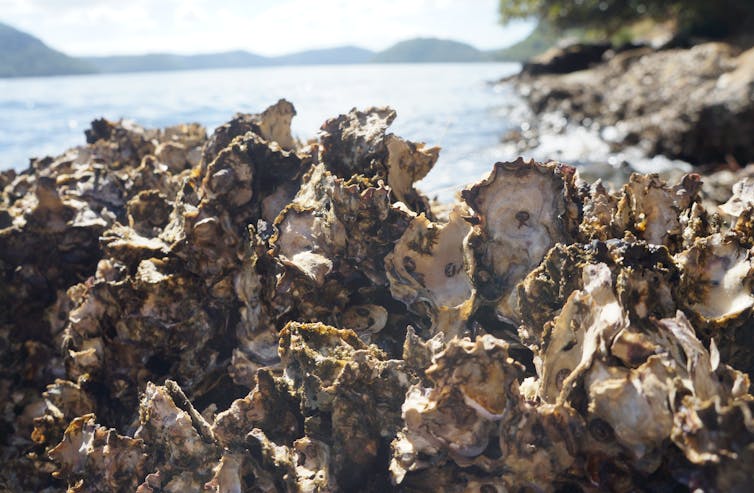Australia.- Marine aquaculture can be criticised for the negative effect it can have on the environment. But is it really that bad? Does aquaculture also provide positive benefits for our oceans and marine life? A team of scientists from the University of Adelaide, The Nature Conservancy and Macquarie University wanted to find out.
Their conclusions are published today in BioScience. They found that while negative impacts can occur from aquaculture (largely through poorly designed, sited, regulated or operated facilities) there is a growing body of evidence to suggest we may be overlooking the broader, positive ecosystem and social benefits associated with aquaculture operations in marine environments, such as shellfish, algae and fish farming.
Lead author on the study, Dr Heidi Alleway from the University of Adelaide, explains: “Our reading found that aquaculture facilities can deliver a range of goods and services that provide benefits to people and nature, beyond merely the production of food, and may be able to be designed to boost these effects.”
Much like the ecosystem services provided free-of-charge by nature, these benefits are the goods (such as food and medicines) and services (such as water treatment, shelter/habitat for wildlife and erosion prevention).
Heading a team of scientists on the study from The Nature Conservancy, Dr Chris Gillies, Marine Manager at TNC Australia said, “we found that these benefits can sometimes mitigate and even outweigh negative impacts, which is important to bear in mind as we face the global challenge of providing food sustainably to a growing population.”
Only a small portion of the Earth’s surface is currently used for aquaculture. Its potential to produce food for a hungry world is immense. For example, it has recently been estimated the current total landings of all wild-capture fisheries could be produced using less than 0.015% of the global ocean area.
Ensuring aquaculture can deliver ecosystem services, without these benefits being compromised by negative impacts, requires aquaculture facilities to be more conscious of their design and their interactions with their surroundings, to maximise the positive effects.
The paper published today illustrates that recognition and more active accounting of the positive benefits that might be delivered by marine aquaculture needs to occur to provide a broader and more accurate valuation of the full range of effects. If this occurs, it could be a major driver of improved ecological and social benefits from aquaculture activities, alongside economic outcomes.
Stay Always Informed
Join our communities to instantly receive the most important news, reports, and analysis from the aquaculture industry.
Reference:
Heidi K Alleway, Chris L Gillies, Melanie J Bishop, Rebecca R Gentry, Seth J Theuerkauf, Robert Jones. The Ecosystem Services of Marine Aquaculture: Valuing Benefits to People and Nature. BioScience, biy137, https://doi.org/10.1093/biosci/biy137 https://academic.oup.com/bioscience/advance-article-abstract/doi/10.1093/biosci/biy137/5209352
Source: The Nature Conservancy
Editor at the digital magazine AquaHoy. He holds a degree in Aquaculture Biology from the National University of Santa (UNS) and a Master’s degree in Science and Innovation Management from the Polytechnic University of Valencia, with postgraduate diplomas in Business Innovation and Innovation Management. He possesses extensive experience in the aquaculture and fisheries sector, having led the Fisheries Innovation Unit of the National Program for Innovation in Fisheries and Aquaculture (PNIPA). He has served as a senior consultant in technology watch, an innovation project formulator and advisor, and a lecturer at UNS. He is a member of the Peruvian College of Biologists and was recognized by the World Aquaculture Society (WAS) in 2016 for his contribution to aquaculture.







